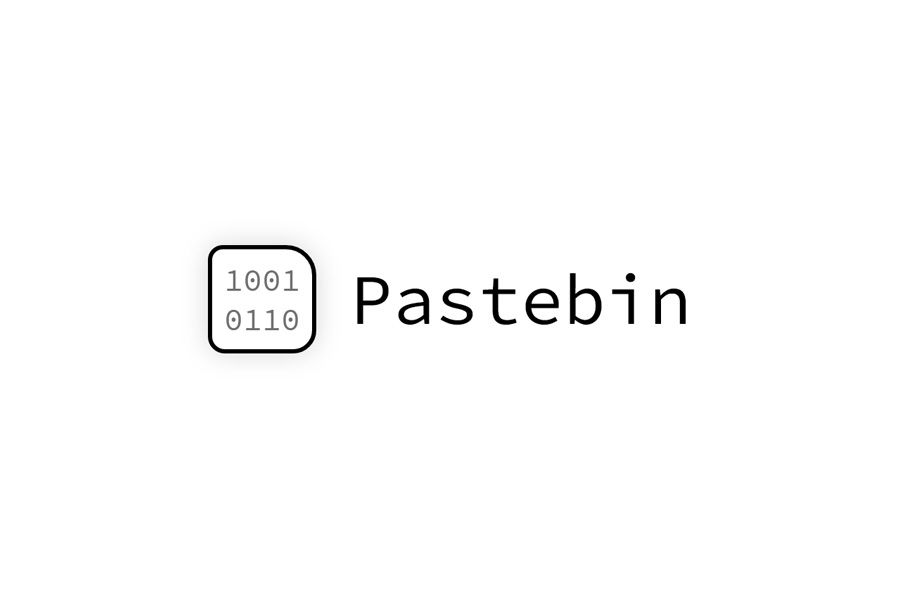Pastebin is a popular online platform for sharing and storing plain text, code snippets, and other content. Over the years, it has become a go-to solution for developers, researchers, and anyone who wants to share text or code quickly and easily. However, with the growth of the coding community and increasing demand for more advanced features, developers and users have started looking for Pastebin alternatives.

In this article, we will discuss the 9 best Pastebin alternatives that you can use for your code sharing needs. These alternatives offer a range of features, from version control and syntax highlighting to collaboration tools and support for multiple programming languages. Whether you’re a developer, a student, or just someone who loves to tinker with code, you’re sure to find an alternative that suits your needs.
1. GitHub Gist
1.1 Overview and features
GitHub Gist is a code sharing platform developed by GitHub, the popular web-based version control platform. Gist allows users to create and share code snippets, or “gists,” that can be public or private. Gists support both Markdown and code, which means you can create well-documented and formatted snippets. One of the most powerful features of Gist is its support for version control, allowing you to track changes and collaborate with others on your code.
1.2 Use cases
GitHub Gist is an excellent option for developers who want to collaborate on code or documentation with their team. It is also useful for maintaining a personal library of code snippets that you can easily access and update.
1.3 Pricing
GitHub Gist is available for free, but you can also access it as part of GitHub’s paid plans, which offer additional features and private repositories.
2. GitLab Snippets
2.1 Overview and features
GitLab Snippets is a code sharing platform by GitLab, another popular web-based version control and collaboration tool. GitLab Snippets provides an easy way to manage and share code snippets within a project or with your team. It supports syntax highlighting, making it easy to read and understand the code. One of the key features of GitLab Snippets is its integration with GitLab projects, making it simple to organize and manage your snippets alongside your main codebase.
2.2 Use cases
GitLab Snippets is ideal for teams that are already using GitLab for their projects and want a seamless way to share and manage code snippets. It is also a great option for individual developers who want to create a personal library of code snippets that can be easily accessed and updated.
2.3 Pricing
GitLab Snippets is available as part of GitLab’s free and paid plans, with additional features and storage available in the paid plans.
3. Hastebin
3.1 Overview and features
Hastebin is a simple and minimalist code sharing platform that focuses on ease of use and quick sharing. It features a clean and clutter-free interface that allows you to paste your code and get a shareable link in seconds. Hastebin supports syntax highlighting for various programming languages, making it easy to read and understand the code.
3.2 Use cases
Hastebin is perfect for those who need to share code quickly and easily without the need for advanced features or collaboration tools. It is also an excellent option for brainstorming and collaborating on ideas with others, thanks to its simplicity and ease of use.
3.3 Pricing
Hastebin is available for free.
4. Repl.it
4.1 Overview and features
Repl.it is an online code editor and sharing platform that supports multiple programming languages. With Repl.it, you can write, run, and share code right in your browser, making it a powerful and convenient tool for developers. Repl.it’s collaboration features allow you to work with others in real-time and even embed your code into websites or other platforms. The platform also includes syntax highlighting and autocompletion, making it easier to write and understand code.
4.2 Use cases
Repl.it is an excellent tool for prototyping ideas and experimenting with different programming languages without needing to install any software. It is also a fantastic resource for teaching and learning programming, as it allows users to write, run, and share code easily.
4.3 Pricing
Repl.it offers both free and paid plans, with the paid plans providing additional features such as private projects, more storage, and priority support.
5. CodePen
5.1 Overview and features
CodePen is a web development-focused platform for writing and sharing HTML, CSS, and JavaScript code. It provides live previews of your code, allowing you to see the result of your work in real-time. CodePen is community-driven, with users able to browse and interact with other developers’ creations. This makes it a great source of inspiration for web developers and designers.
5.2 Use cases
CodePen is ideal for front-end developers who want to experiment with new ideas, share their work, and find inspiration from others in the community. It is also a useful tool for showcasing your portfolio or demonstrating your skills to potential employers.
5.3 Pricing
CodePen offers both free and paid plans, with the paid plans providing additional features such as private pens, collaboration mode, and asset hosting.
6. JSFiddle
6.1 Overview and features
JSFiddle is a web development sandbox that allows you to write, run, and share HTML, CSS, and JavaScript code. It provides an intuitive interface for writing code and integrates with popular libraries like jQuery, Angular, and React, making it easy to experiment with different frameworks. JSFiddle also supports collaboration, allowing you to share your code with others and receive feedback.
6.2 Use cases
JSFiddle is perfect for debugging and testing code, as well as creating code demonstrations and examples that can be easily shared with others. It is also an excellent resource for learning and teaching web development concepts.
6.3 Pricing
JSFiddle is available for free.
7. SourceHut
7.1 Overview and features
SourceHut is an open-source platform for code hosting, collaboration, and project management. It focuses on simplicity and efficiency, with a minimalistic and text-based interface that supports email-based collaboration. SourceHut provides Git repository hosting, bug tracking, and mailing list management, making it a versatile and powerful tool for open-source project development.
7.2 Use cases
SourceHut is ideal for developers who are working on open-source projects and want a simple, efficient platform for managing their code and collaborating with others. It is also suitable for those who prefer a text-based interface and email-based collaboration over more graphical tools.
7.3 Pricing
SourceHut offers both free and paid plans, with the paid plans providing additional features such as priority support, more storage, and faster build times.
8. Dnote
8.1 Overview and features
Dnote is a note-taking app designed specifically for developers. It supports Markdown and code snippets, making it easy to create and organize your notes and ideas. Dnote is available across multiple platforms, including web, desktop, and mobile, allowing you to access your notes wherever you are.
8.2 Use cases
Dnote is perfect for developers who want a dedicated solution for managing their code snippets, knowledge, and notes. It can serve as a personal code library, allowing you to store, categorize, and search for snippets that you’ve collected over time. Dnote is also useful for managing other types of technical knowledge, such as documentation, cheat sheets, and tutorials.
8.3 Pricing
Dnote offers both free and paid plans, with the paid plans providing additional features such as syncing across devices, version history, and priority support.
9. LeetCode
9.1 Overview and features
LeetCode is a platform focused on competitive programming and problem-solving. It offers a wide range of coding challenges and problems, along with a code playground where you can write, run, and share code. LeetCode supports multiple programming languages and provides valuable resources for learning and improving your coding skills.
9.2 Use cases
LeetCode is an excellent resource for developers who are preparing for coding interviews or want to participate in coding challenges. It is also a great platform for honing your problem-solving skills and learning new programming concepts.
9.3 Pricing
LeetCode offers both free and paid plans, with the paid plans providing additional features such as premium problems, exclusive content, and priority support.
Conclusion
In this article, we explored the 9 best Pastebin alternatives for code sharing, collaboration, and learning. Each platform offers its unique set of features and capabilities, catering to different user needs and preferences. Whether you need a simple and minimalist solution like Hastebin or a more feature-rich platform like GitHub Gist or GitLab Snippets, there’s an alternative out there that can help you unleash the full potential of code sharing.
Frequently Asked Questions (FAQs)
- Why use a Pastebin alternative? Pastebin alternatives often provide additional features and capabilities, such as version control, syntax highlighting, and support for multiple programming languages. These features can improve your code sharing experience and help you collaborate more effectively with others.
- How do I choose the right code sharing platform for my needs? Consider your specific requirements and preferences, such as the programming languages you work with, the level of collaboration you need, and the features you value most. Review the features and use cases for each platform in this article to find the one that best suits your needs.
- Are there any security concerns with using code sharing platforms? As with any online platform, there are potential security risks associated with sharing sensitive information or code. Be cautious when sharing private or sensitive data and consider using platforms that offer private repositories or encryption to protect your information.
- Can I use multiple code sharing platforms at once? Yes, you can use multiple code sharing platforms depending on your needs and preferences. Some developers may use one platform for personal code libraries, another for collaborative projects, and yet another for learning and experimentation.
- What is the main difference between Pastebin and its alternatives? While Pastebin is a simple and easy-to-use platform for sharing text and code snippets, many of its alternatives offer more advanced features, such as version control, collaboration tools, syntax highlighting, and support for multiple programming languages. These additional features can make the code sharing experience more powerful and efficient for developers and users.
